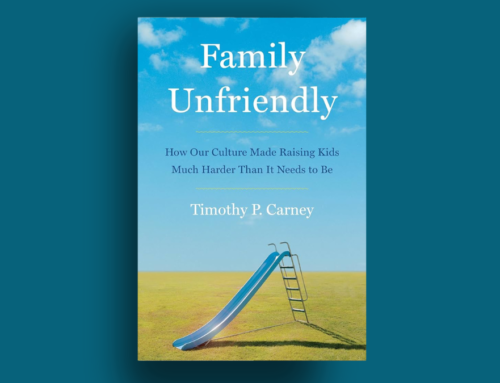How The Spirit Helps & Other Things To Contemplate
ACP
Sunday, March 16th, 2014
How the Spirit Helps
by Pastor Cornelius R. Stam
“The Spirit… helpeth our infirmities” (Romans 8.26).
A chain is no stronger than its weakest link. If one link in a chain will hold one hundred pounds, another fifty, and another ten, the chain as a whole will hold ten pounds, no more. This is why James 2:10 says:
“For whosoever shall keep the whole law, and yet offend in one point, he is guilty of all.”
Many people suppose that we will be saved or lost according to how good or bad we have been. This is not so. It is not a question of how good or bad we have been, but of whether or not we have sinned. A man need commit only one robbery to be a robber, burn only one house to be an arsonist, kill only one human being to be a murderer — and commit only one sin to be a sinner. This is why the Word of God says that all are sinners.
How wonderful to know that in grace “Christ died for our sins” and that by simple faith in Him we may be saved and fully justified before God! (Romans 5:6,8,10).
But born-again Christians find that the above principle is just as true of them as of the unbeliever. None of us is any stronger than his weakest point. Frightening, isn’t it, especially when we consider that Satan constantly attacks us at our weakest point to wreck our testimony if he can.
But here is where the believer can rejoice that “the Spirit… helpeth our infirmities” (Romans 8:26). He dwells within to help in time of need, so that we need not fail (Romans 8:11,12). This does not mean, however, that He takes control of us without being called upon, as He did “when the day of Pentecost was fully come.” Unlike the Pentecostal believers, we live under “the dispensation of the grace of God.”
What God provides by grace we must appropriate by faith. Thus in any given case we may have victory. Indeed it is concerning the weak brother in Christ that Paul declares by inspiration: “God is able to make him stand” (Romans 14:4).
Vance Havner Quote of the Day
In state and church too many decisions are reached by compromise – steam-rollered by a consensus of rubber stamps and yes-men. It is fast becoming the unpardonable sin to be a lone dissenter on any issue. The big idea is to present a united front at any cost. A prominent churchman has reminded us that this can be a sinister device, smothering all opposition and excluding passion for rightness and reform. Under the pretext of a solid front to enemies without, we are told to overlook all deserters and traitors within our own ranks, since this causes division. Unification, unanimity, and uniformity are the order of the hour, and woe unto any Micaiah who disagrees with four hundred false prophets bidding Ahab and Jehoshaphat go up against Ramoth-gilead! This will, of course, in time produce a monolithic world state and world church with the mark of the beast and plenty of trouble for any who do not wear his brand. This is the advance program of Antichrist.
Every-Man Evangelism
by Pastor Cornelius R. Stam
“Do the work of an evangelist.”
Paul’s Spirit-inspired injunction in II Timothy 4:5 applies indirectly to every believer in Christ. Are not our pastors simply leaders in the work of the Lord? Shall the congregation sit idly by as the pastor alone does “the work of an evangelist?” God forbid! The pastor is rather to be an example to his flock to go and do likewise.
How well this writer recalls the days of the so-called Darby-Scofield movement when multitudes all over the country thronged to hear Bible teachers like Gaebelein, Gray, Gregg, Ottman, Chafer and Newell. These able men of God expounded the Word as the “blessed hope” of the Lord’s return was being recovered. But these Bible teachers were evangelists too, in the truest sense of the word, and their evangelism was contagious.
In those days almost all true believers, including the young people, carried New Testaments in their pockets wherever they went. Why? They hoped and prayed for opportunities to testify to others about God’s plan of salvation through Christ and they wanted to show them the way from Scripture. In those days if a Christian failed to have a New Testament with him he was apt to be reproved with the words: “What! a soldier without a sword?” By contrast few believers carry New Testaments about with them today, and they certainly don’t carry Bibles!
Some are telling us today that this brand of fundamentalism is out of date and ineffective in these fast-changing times. We reply that all of us ought to get back to this brand of fundamentalism, this earnest effort to personally win souls to Christ by showing them God’s plan of salvation from the Scriptures.
God help his people in general and each spiritual leader in particular, to “do the work of an evangelist.”
Vance Havner Devotion of the Day
Showcase and Shelves
A friend of mine in his journey is come to me, and I have nothing to set before him. Luke 11:6
Many a Christian, many a church, has everything in the showcase and nothing on the shelves. The customers come in, but everything is in the window. We have nothing ins stock, no spiritual reserves, no Divine supplies, no bread from heaven.
“Therefore every scribe which is instructed unto the kingdom of heaven is like a man that is an householder which bringeth forth out of his treasure things new an old” (Matthew 13:52). Change it to “storekeeper” and the lesson is the same. But what is we have no treasure, no goods on hand?
True, we are dispensers, not depositories, and we are to relay the bread from God to men, fresh bread, not stale. But there must be a deposit if we are to dispense. We should have a stock of Scripture, of experience, of grace, treasure in earthen vessels that we may have to give to him that needeth.
Pity the church with everything in the show window and showcase, where the hungry come and find but a shell, nothing in stock!
Grieve Not The Spirit
by Pastor Cornelius R. Stam
The first lesson each believer in Christ should learn is that immediately upon believing he is given everlasting life. Referring to this fact Ephesians 1:13,14 says:
“In whom ye also trusted, having heard the word of truth, the gospel of your salvation: in whom also having believed, ye were sealed with that Holy Spirit of promise.”
Mark well, the believer is not sealed by the Holy Spirit, but “with” the Holy Spirit. The Spirit Himself is the seal. Every sincere believer in Christ, then, should rejoice in an accomplished redemption and rest in the fact that the Holy Spirit will keep him eternally safe.
But while we cannot lose the Holy Spirit we can, and often do, grieve the Holy Spirit, as we read in Ephesians 4:30. This is why we are told in Romans 8:26 that the Spirit “helpeth our infirmities” and makes intercession for us, that we might live lives which please and honor God.
The wonderful fact is, however, that “nothing,” not even an aggrieved Spirit shall “separate us from the love of God” (Romans 8:38,39). Thus in the same breath with which the Apostle exhorts us not to grieve the Spirit he again reassures us that this same Spirit keeps us eternally safe:
“And grieve not the Holy Spirit of God, whereby ye are sealed unto the day of redemption” (Ephesians 4:30).
Does this encourage careless living? Those who think so have missed the whole point of Paul’s appeal. The Apostle does not warn the believer that if he grieves the Spirit he will be lost. Rather, in grace he exhorts: “Do not grieve the very Spirit who in mercy and love has sealed you as forever His own. Do not repay such love with such ingratitude.”
A.W. Tozer Daily Devotional
Escaping Human Ruin
We can know our present properly only as we know our past, and in that past there occurred something disgraceful and tragic, namely, the loss of our moral character and rebellion against our Creator. That we also lost our happiness is of secondary importance since it is but a result of our alienation from God and not a part of that alienation.
The primary work of Christ in redemption is to justify, sanctify and ultimately to glorify a company of persons salvaged from the ruin of the human race.
For the convenience of any who may not be familiar with the words used here I would explain that justify means to declare righteous before God, sanctify means to make holy, and glorify means in effect to remake the entire personality after the image of Christ. This will fit us to dwell eternally in that heaven about which the Bible speaks and which is both a state of being and a location. In that heaven the ransomed will experience unclouded communion with the Triune God; and that will itself assure unalloyed blessedness.
I have just now used the word “ruin” and associated it with the human race. This is not a figure of speech nor is it an extravagant or irresponsible use of a word. The race lies in ruin, spiritually, morally and physically. History and the daily newspaper testify to our moral ruin. The long parade of gods both virtuous and obscene and a thousand varieties of vain and meaningless religious practices declare our spiritual degeneration, while disease, old age and death testify sadly to the completeness of our physical decay.
Verse
It is because of him that you are in Christ Jesus, who has become for us wisdom from God—that is, our righteousness, holiness and redemption. Therefore, as it is written: ‘Let him who boasts boast in the Lord.’ 1 Corinthians 1:30–31
Thought
It is understanding of our lostness, our human ruin, that magnifies our desparate need of redemption. Justification, sanctification, glorification are not merely theological terms. They describe what we may all experience through faith in Christ and without which we sink into eternal lostness.
Prayer
It is to You, I look, O God. Eternal lostness is what I deserve but I trust You for eternal life through Christ.
Audio Sermon
(1 Peter – Part 28): After Conversion, the Remainder of Your Life Should Be Different by A.W. Tozer
The Accomplishments Of Calvary
by Pastor Cornelius R. Stam
Three times in Romans 5 we read that Christ died for us. Verse 6 tells us that He died for us in our weakness, Verse 8 that He died for us in our sin, and Verse 10 that He died for us in our rebellion.
First, Verse 6 says: “For when we were yet WITHOUT STRENGTH, in due time Christ died for the ungodly”.
Men sometimes try to make themselves acceptable to God by human effort, but they never succeed. We can’t walk or run to heaven, we can’t even fly there, and we certainly can’t climb there — not even by doing good works, for good works is what we ought to do, and we should not expect them to counter-balance our sinful thoughts and deeds. Anyway, heaven is God’s and He says we cannot gain it by works:
“For by grace are ye saved, through faith, and that not of yourselves; it is the gift of God; not of works, lest any man should boast” (Ephesians 2:8,9).
Next, Romans 5:8 says: “God commendeth His love toward us, in that, while we were yet SINNERS, Christ died for us”.
Many people feel shut out of heaven, not merely because of a sense of helplessness, but because of a sense of sinfulness and condemnation. To such God proclaims the glad news that “Christ died for sinners”, and “came into the world to save sinners” (I Timothy1:15). At Calvary He paid the just penalty for sin — for the sins of all mankind — so that we, by faith, might be “justified freely by His grace through the redemption that is in Christ Jesus” (Romans 3:24).
But Romans 5:10 goes even further, offering hope and grace to those who have resisted God’s grace and rejected His Son, for here the greatest Christ-rejecter of all time, now gloriously saved and changed, declares:
“When we were ENEMIES, we were reconciled to God by the death of His Son” (Rom.5:10).
And so the helpless, the sinful, yes, and the rebellious, can find acceptance with God if only they will turn to Him from their sin and failure. “BELIEVE ON THE LORD JESUS CHRIST AND THOU SHALT BE SAVED…” (Acts 16:31).








Leave a Reply, please --- thank you.